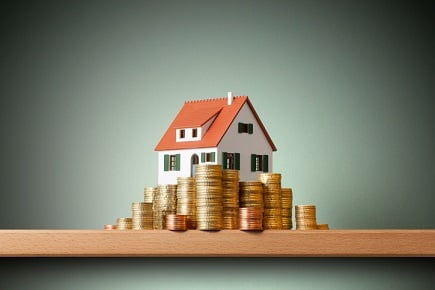Potential homebuyers who have been declared bankrupt may believe that they cannot apply for a mortgage or other loan for many years afterwards, but a new survey suggests otherwise

Potential homebuyers who have been declared bankrupt may believe that they cannot apply for a mortgage or other loan for many years afterwards, but a new survey suggests otherwise.
With many people still recovering from the effects of the housing market crash and recession, LendingTree looked at the impact of bankruptcy.
It found that, while credit scores and eligibility are clearly affected, often after only a few years former bankrupt homebuyers can qualify for a loan at rates not too much higher than other borrowers.
"People may think that filing a bankruptcy would put you out of the loan market for seven to ten years, but this study shows that it is possible to rebuild your credit to a good credit quality," said Raj Patel, LendingTree's director of credit restoration and debt-related services and products.
The survey found that 43% of those with a bankruptcy on their credit file have a credit score of 640 or higher within a year of the bankruptcy; and 65% do within two years.
However, getting a mortgage within 2 years of bankruptcy is unlikely due to Fannie Mae not typically buying such loans.
That amounts to an additional $8,887. But 5 years after the bankruptcy, the additional cost falls to $6,032.
The study found that higher credit scores make a difference even after a bankruptcy. Those with scores of 720-739 were offered rates similar to those without a bankruptcy after just three years.
However, on average scores were 640 after a year, rising after 5 years to 672.
"The biggest challenge in rebuilding credit is for the consumer to stick to a disciplined approach by getting access to the credit but sticking to a plan for not overusing the credit. The key is to use it responsibly — keeping balances low and making payments on time, which are two of the biggest factors that impact your credit score."



